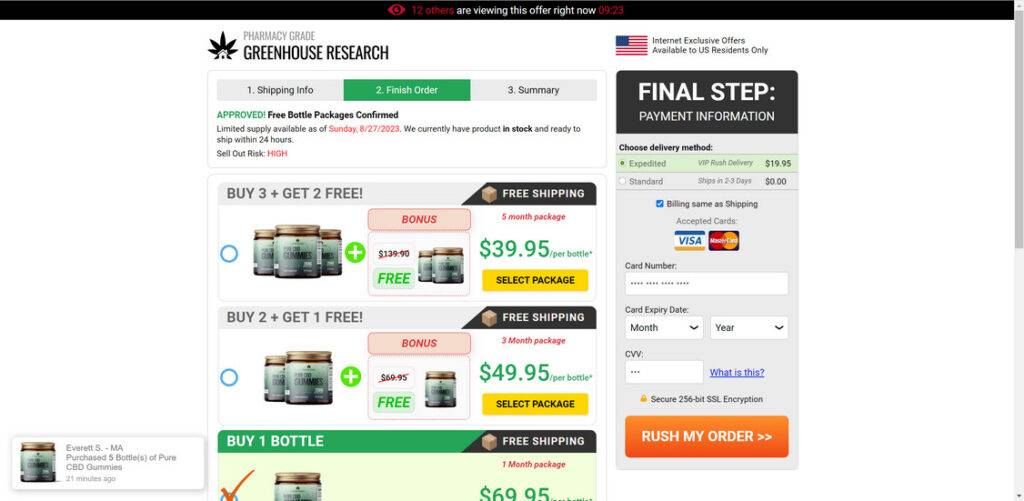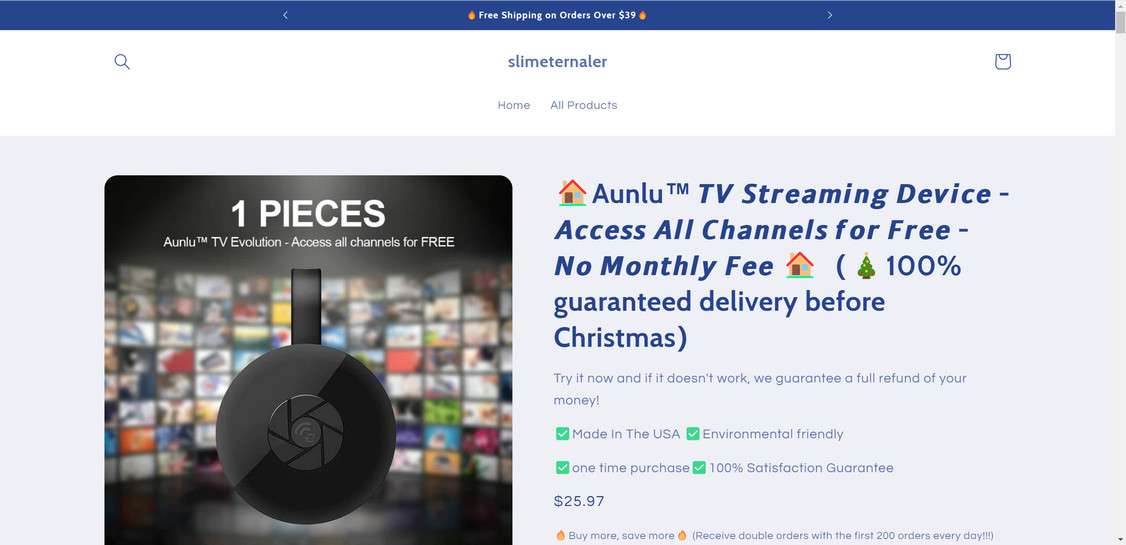Recently, sketchy advertisements on platforms like Facebook have featured images of Dr. Brandon Fadner next to outlandish claims that he created special keto supplements, apple cider vinegar gummies, CBD gummies and other similar products that allowed patients to achieve dramatic weight loss results. Quotes are fabricated and attributed to Dr. Fadner as if he is revealing weight loss secrets.
The ads use headlines like “Dr. Fadner Discovered The Real Weight Loss Cure” or “His Patients Have Lost 47 Pounds in Just Weeks!” to entice consumers. Links then redirect to shady websites selling all sorts of diet pills, “drops,” and gummies at steep discounts.
However, Dr. Brandon Fadner has never actually endorsed or recommended any type of weight loss supplement tied to get-skinny-quick scheme ads. The celebrity endorsement claims and dramatic results promises are completely made up with the intent to deceive and scam consumers out of their money.
This article will delve into how precisely these weight loss scams operate through deception about Dr. Fadner’s ties to an array of “fat burner” products constantly re-branded to avoid accountability. Tips will also be provided for consumers to protect themselves and report these fraudulent schemes claiming alignment with Dr. Brandon Fadner’s reputation and brand.




Overview of The Dr. Fadner Weight Loss Scam
This pervasive scam works by falsely aligning miracle weight loss claims with Dr. Brandon Fadner through fake product endorsements. The deceptive associations help proliferate scam keto, CBD and diet pill promotions designed to repeatedly charge customer credit cards through hidden monthly subscriptions and refusing refunds.
Bogus limited-time discount offers convince targets they are just making a one-time purchase. But obscure fine print hides costly recurring shipments tied to ”free trial” enrollments in subscription plans that automatically renew monthly. These charges can stack up to thousands without consent.
When consumers try cancelling and recouping unauthorized charges for product they only intended to buy once, requests get ignored, making it exceedingly difficult to halt the billing fraud.
By peddling various mysteriously branded gummies, supplements, drops and pills, the scammers avoid accountability, shut down sites often and open new ones to continue credit card billing schemes through deceptive endorsements and refusal to cancel recurring orders or refund victims.
This guide pulls back the curtain on how scammers have been exploiting Dr. Fadner’s fame through recurring subscription traps for unproven weight loss products continually repackaged under new names. Keep reading to learn how to protect yourself and fight back.
How The Dr. Fadner Weight Loss Scam Works
The fraudsters behind celebrity diet pill scams utilize similar web and sales funnel strategies across all the products they falsely market with famous brand endorsements. Following is a step-by-step look at how the overarching scam ensnares victims:
Step 1: Baiting Targets with Celebrity Ties
Scam ads leverage Dr. Fadner’s reputation by featuring altered before/after photos and fabricated quotes as if he is revealing the supplements behind his patients’ success losing weight. Different products like Ignite Keto Gummies, Rebirth CBD Gummies, Keto Crave Drops or XSlim ACV pills are promoted across scam ads, but always tied to the same fake Dr. Fadner endorsements.
Step 2: Landing Targets on Deceptive Sales Pages
The sketchy ads funnel victims to elaborate sales pages that continue the ruse of special offers tied to Dr. Fadner unlocking discount pricing on these obscure weight loss products. More doctored images depict the doctor alongside the product with fake patient testimonials. High pressure tactics urge customers to purchase quickly before discounts expire.
Step 3: Charging Credit Cards for Initial Order
Targets must submit credit card information to purchase the diet pills or gummies, believing the discounts imply this is a one-time payment. However, hidden additional fees tack onto the charge during checkout, hiking the total price. Victims only possess the supplements they willingly purchased at this point.
Step 4: Enrolling Victims in Monthly Autoship Plans
This is where the grand credit card billing scheme activates. After initial payment, obscure fine print notes purchases have enrolled buyers into costly monthly subscription plans to receive recurring shipments of the weight loss products. Without transparency or properly obtaining consent, victims find more charges from the celebrity supplement scam hitting their statements.
Step 5: Ignoring Cancellation & Refund Requests
Eventually noticing the unauthorized subscription fees for unused recurring orders of assorted diet pills and gummies, victims contact customer service to halt shipments and refund the fraudulent charges. But just like when they avoid requests to clarify subscription terms during the ordering process, communication attempts are ignored. Scammers understand denying cancellations and refunds keeps the scam thriving longer.
As shown above, fake celebrity endorsements are used to bait targets while shady website tactics dupe customers into unintentionally providing payment information that allows scammers to automatically bill credit cards in monthly recurring subscription fees through deception and essentially stealing identities. It’s an intricate fraud operation.
How To Spot Scam Websites Exploiting Dr. Fadner
When searching for dubious weight loss supplements online tied to Dr. Brandon Fadner, numerous scam websites exist solely to unlawfully charge your credit card through deceptive subscriptions and fake endorsements. Here’s what to scrutinize:
Recently Registered Domains
Fraudulent sites often use domains registered in just the past few months. Search the domain on WHOIS lookup sites to verify when it was created. Recent formations indicate transient scams trying to capitalize on Dr. Fadner’s brand through unlawful recurring credit card billings.
Lack of Contact Information
Missing company details like addresses, phone numbers and opportunity to reach out beyond an email demonstrate calculated criminal efforts to remain incognito while flaunting unbelievable clearance deals. This lack of accountability aids billing scams.
Unbelievable Deals
90% off limited-time sales or similar too good to be true, act-now offers should instinctively signal scam alarms. Genuine companies with coveted products avoid drastically slashing prices overnight without reasonable explanations.
Template Website Designs
Amateur site layouts with oddly familiar content arrangements, stock photography and visible artifacts like watermarks expose scammy designs geared solely for credit card data harvesting through fabricated limited-time hype and fake celebrity alignment claims exploiting Dr. Fadner’s credentials.
Fraudsters rely on concealment mechanisms across shadily put-together domains overloading senses with celebrity stimulation, unbelievable discount urgency and stolen legitimacy indicators to scam people through recurring credit card charges for unwanted mystery weight loss products. But seeing their tactics more clearly should help many steer clear of entering payment data and getting scammed. Remain vigilant!
How To Detect Dr. Fadner Weight Loss Scams on Social Media
In addition to shady websites, scammers leverage Facebook, Instagram, TikTok and other platforms using fabricated Dr. Fadner endorsements and enticing slogans like “Clearance Sale!” or “90% Off For 24 Hours Only!” to promote bogus weight loss supplement subscription scams through advertisements and posts.
Catching Facebook Scams
- Doctored Videos: AI-faked footage may depict Dr. Fadner raving about diet pills or weight loss gummies. But visual oddities exposing the synthesized fakery become visible on closer inspection.
- Clickbait Buzzwords: Outrageous “Secret fat burning discovery!” or “Shop the clearance sale!” headlines aim to bait engagement and links likely lead to phishing supplement sales pages.
- Stolen Celebrity Images: Real photos of Dr. Fadner from reputable media sites get repurposed alongside the sham pill promotions to falsely depict his endorsement.
- Fake Profiles and Comments: Scam posts seem to have excited comments but clicking profiles reveals AI-generated accounts just created to write praise, not real users.
Identifying Instagram Scams
- Doctored Images: Poorly manipulated before/after photos showing warped backgrounds and proportions accompanied by “Last chance for 90% off!” captions betray the deceptive endorsement scams.
- Time Limit Tactics: Sketchy Instagram Stories or posts pushing unknown weight loss gummies always seem to be having short-term blowout sales with “Act fast before the discounts disappear!” urgency applied.
- Repurposed Celebrity Photos: Real pictures recycled from legitimate health sites and attached next to fake Dr. Fadner weight loss endorsements aim to erroneously portray validity.
Catching TikTok Scams
- Synthetic Videos: Brief TikTok clips showing Dr. Fadner transformed into suspiciously younger looking versions of himself pitching supplement scams reveal AI impersonation attempts.
- Stock Content Recycling: Odd background music and transitions cloned across multiple scam TikTok posts should instinctively signal deceitful coordination of bait content tied to the special sale phrases.
- Link Spam: Comment floods on real weight loss or health hashtags redirecting to shady pill vendor sites leverage people’s goals around self-improvement tied to manufactured limited-time hype.
Apply skepticism before believing too-good-to-be-true weight loss claims tied to Dr. Fadner across social channels – especially those push limited-time discounts. Seek further evidence beyond unbelievable ads boasting clearance prices. Guard payment information and avoid entering it on sketchy sales pages showing signs of duplicity.
What To Do If You Get Scammed by Fake Dr. Fadner Supplements
If you discover unauthorized subscription charges on your credit card statements from any sketchy weight loss supplements tied dishonestly to Dr. Brandon Fadner, promptly take the following action steps:
Step 1: Contact Your Credit Card Company
Notify your credit card issuer you are the victim of an illegal auto-renewal subscription scam operating through Dr. Fadner’s reputation. Per consumer protection policies regarding undisclosed recurring billings, request they immediately block any additional related charges.
Step 2: Cancel Open Subscriptions
Call customer service for whichever weight loss pills or gummies scammed you to unambiguously terminate subscriptions and any permission to continue billing your card. Send cancellation confirmation emails as well. If charges continue, threaten legal escalation and show prior efforts to halt payments.
Step 3: Dispute All Unauthorized Fees
Account statements will indicate each date/amount for scam charges from unused recurring shipments of diet pills, keto gummies, etc. Submit signed disputes for each fraudulent billing instance with your credit card provider. Include details on the deceptive bait-and-switch tactics and refusal to cancel subscriptions per your requests.
Step 4: Report The Scam
File detailed scam reports about whichever weight loss product wrongly used Dr. Fadner’s brand with the FTC, state attorneys general, BBB and reviews on social media. Spreading awareness protects others from these predatory celebrity endorsement scams charging cards through obscure monthly autoship subscriptions.
Act fast when catching subscription scams exploiting Dr. Fadner’s reputation without permission. Credit card providers offer protections against undisclosed recurring fees. Successful cancellation and chargebacks recover your hard-earned money. Promoting public awareness also helps more avoiding falling for celebrity bait-and-switch diet pill schemes.
How To Identify These Celebrity Weight Loss Scams
While the brands constantly change, learn to recognize the recurring markers of Dr. Brandon Fadner weight loss scams:
Unrealistic Endorsement Claims
Cellulite removal or losing 50 pounds in days are highly suspect promises. Apply skepticism to any wild weight reduction claims tied to Dr. Fadner’s endorsement. Verify them through objective sources before believing.
Pressure To Purchase
Limited-time discounts, now-or-never deadlines and other high pressure sales tactics should signal scams. No legitimate retailer relies on such obnoxious urgency to make sales.
Buried Subscription Terms
Masked by walls of text or small print, buried subscription clauses enabling recurring shipments and charges are a huge red flag. Read everything, especially about payment processes/policies.
No Real User Reviews
Lack of unbiased feedback on the website or impartial review sites indicates probable shadiness. Scam pills/gummies only have fake written “reviews” if any. Authentic customer commentary is nonexistent.
Zero Product Label Details
When bottles arrive, generic packaging lacking any supplement facts, ingredients lists or dosing instructions means bait-and-switch false advertising is likely occurring. You can’t verify what you actually paid for.
Stay vigilant against unbelievable weight loss claims tied to Dr. Fadner’s endorsement until they are verified. Check fine print. Seek real user reviews across BBB, forums and social media. If something seems questionable, avoid providing payment information. Protect yourself from credit card billing scams exploiting Dr. Brandon Fadner’s reputation.
Frequently Asked Questions About The Dr. Fadner Diet Scam
This FAQ delivers insights into key aspects regarding the deceptive weight loss scams falsely claiming alignments with Dr. Brandon Fadner through fake endorsements and unbelievable discounts to unlawfully charge customer credit cards.
Has Dr. Fadner Really Endorsed Any Supplements?
No. Despite what convoluted ads and sites imply, Dr. Brandon Fadner has not aligned with or endorsed any specific weight loss pills, gummies or drops. Companies fabricate quotes, steal his credentials and images while fabricating limited-time hype to propagate recurring billing scams.
What Weight Loss Benefits Do These Products Truly Offer?
In reality, no reliable scientific evidence validates the outlandish promises made about burning fat overnight, eliminating cellulite instantly or similar outcomes tied to randomly branded gummies or keto pills promoted using Dr. Fadner’s persona through criminal deception.
How Does The Scam Actually Work?
Scammers bait targets through fabricated celebrity alignments and bogus limited-time deals. Sales pages exaggerate discounts to prompt orders. Entering payment data signs up customers for hidden monthly subscription plans automatically billing credit cards without properly obtaining consent.
What Recurring Fees Do Victims Pay?
Unauthorized subscription charges typically stack up to $100+ per month for unused recurring shipments of assorted diet pills, keto gummies, apple cider vinegar drinks or other rebranded products victims never intentionally enrolled to keep purchasing monthly.
Why Do They Make Cancellations Difficult?
By ignoring victim requests to halt unauthorized billing cycles, scammers can keep extracting recurring credit card payments for unsolicited product orders sent each month. Stonewalling cancellation attempts allows more stolen money.
How Can Consumers Avoid Falling Victim?
Learn to recognize scam markers like unbelievable deals, pressure tactics, hidden billing terms and lack of contact information before assuming validity of miracle celebrity-endorsed solutions. Check statements routinely to catch unauthorized charges early before major damage.
Apply extreme skepticism regarding unbelievable weight loss results tied to Dr. Fadner’s identity, credentials or brand put forth through social media ads and websites boasting clearance level pricing. Avoid entering payment data on sketchy sales pages showing signs of duplicity. Guard against recurring billing scams falsely promoting diet pill alignments with Dr. Brandon Fadner’s reputation.
The Bottom Line
Sketchy diet pill and supplement scammers have been unlawfully profiting through fake weight loss miracle cure claims falsely tied to Dr. Fadner’s endorsement. Sales funnel tricks sign up victims for costly hidden monthly subscriptions without properly obtaining consent under terms or consumer laws.
This purposeful deception and refusal to cancel recurring charges or refund pursuit of payments for unreceived products amounts to advanced credit card billing fraud. However, catching on quickly, reporting to authorities and contacting banks can help consumers recover lost money fairly swiftly before scammers disappear and pop back up with rebranded products.
Hopefully this guide better prepared readers to recognize celebrity supplement scam sales tactics and avoid entering payment information that can be abused through undisclosed auto-renewal subscriptions. Share this article so more consumers don’t fall prey to sketchy monthly billing schemes exploiting Dr. Brandon Fadner’s reputation. And comment your experiences defeating weight loss scams claiming fake celebrity endorsements.




![Remove Clearbridgeworks.co.in Pop-up Ads [Virus Removal Guide] 11 McAfee scam 4](https://malwaretips.com/blogs/wp-content/uploads/2023/08/McAfee-scam-4-290x290.jpg)
